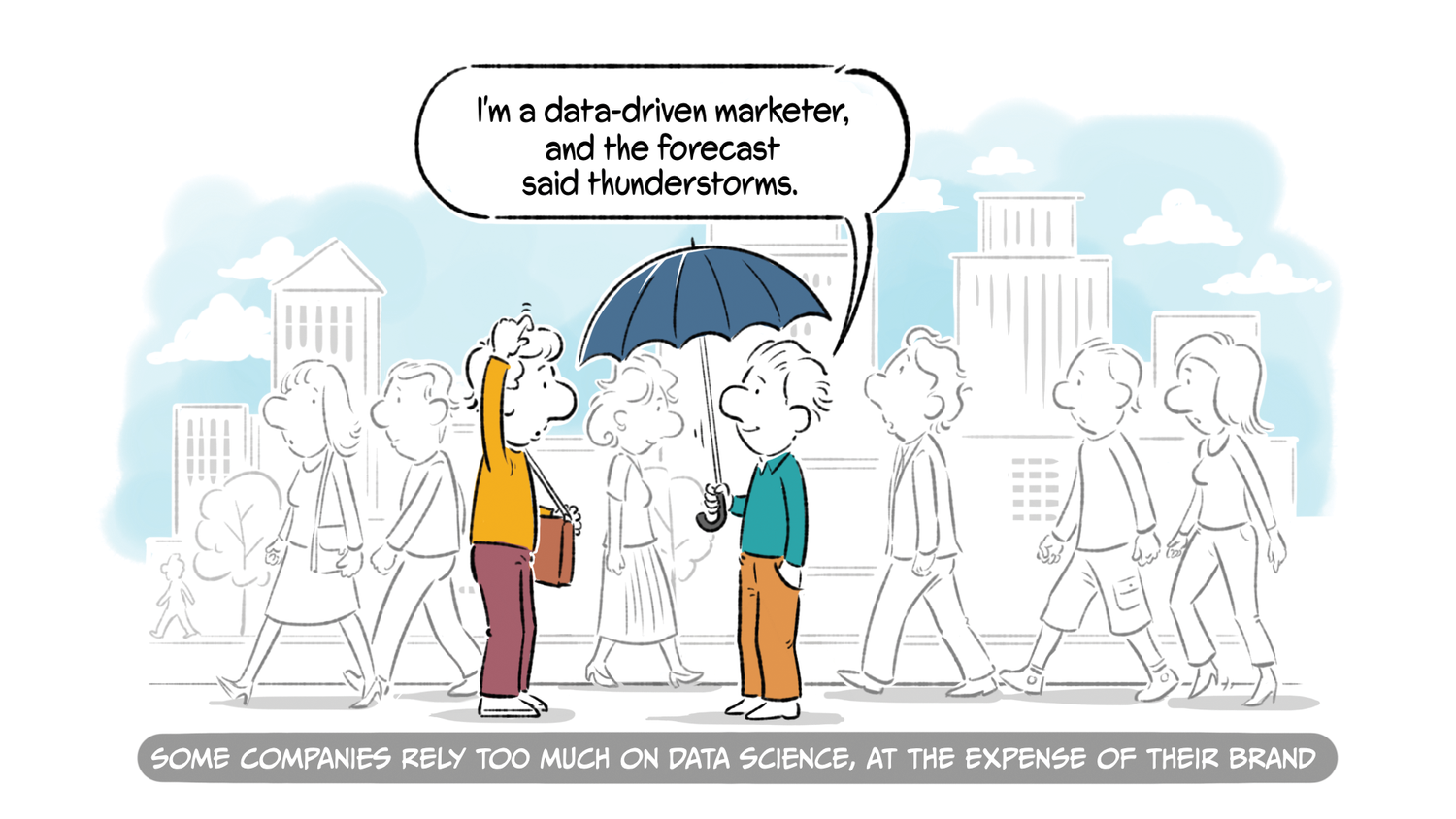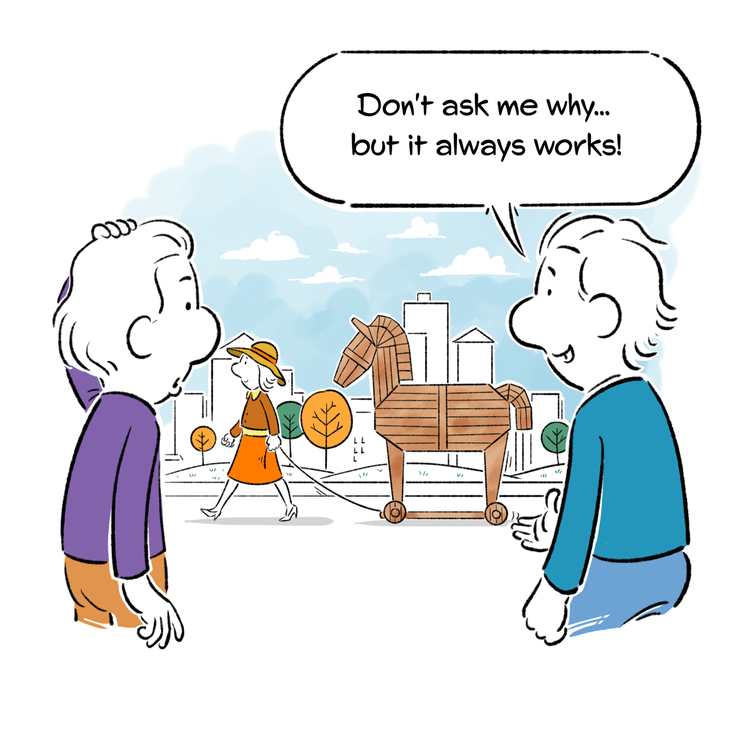
Nancy Harhut
Marketing Creative + Behavioral Science, Co-founder & Chief Creative Officer @ HBT Marketing “driving engagement with science”, book author: Using Behavioral Science in Marketing (Kogan Page, 2022)
Some enterprises are overly-focused on brand without enough emphasis on tracking ROI, whereas others focus too heavily on generating immediate response (at a cost to their brand reputation)
Q: Can you share with us your story, how you got started on behavioral science and marketing effectiveness?
One of my first jobs was as a marketing writer at Inc magazine and then a marketing copywriter at Digitas, working under the legendary Michael Bronner, which was a fascinating experience. And I became the first homegrown creative director there. After that, I worked at a number of big-name agencies, including Mullen and Hill Holliday.
But at one point, I picked up Robert Cialdini’s book “Influence: the psychology of persuasion.” And it sent me down the behavioral science rabbit hole. Behavioral scientists spend a lot of time understanding WHY people make the decisions they make. And it dawned on me that that’s exactly what marketers are doing too! So if there’s a body of academic research that studies how people make decisions, then marketers should be tapping into it.
I started reading all the relevant research from Cialdini, Ariely, Sunstein & Thaler and more. I became a junkie of everything at the intersection of behavioral science and marketing. Which led me to co-found HBT Marketing 5 years ago around the ideas of behavioral science and marketing best practices – marketing that would increase the likelihood of response.
I’ve worked with companies including AT&T, American Express, H&R Block, Nationwide, and also a number of startups. Over the years, my teams and I have won 200 awards for marketing effectiveness, which I want to emphasize because it means that the work we did actually got results – typically measured in sales generated.
Q: The idea of “marketing ROI” that you’re alluding to is that unicorn that everyone is grasping for. What did you learn about achieving measurable marketing effectiveness?
What I learned early on that has served me well is this: before you sit down to design or write the copy for a campaign, before you start constructing your funnel, you need to think “why is my audience NOT going to want to do what I’m asking them to do?”
— NH.
It’s turning the whole idea onto its head. Instead of thinking why they WILL buy, think about what’s holding them back. And then, find ways to demolish those barriers. I have found this to be the best way to come up with truly compelling messaging that will actually change behaviors and drive results.
Because I believe that marketing is not just about what would be a fun or clever idea, or a pretty / arresting visual… Those things have their place, but they have to spring from the core idea of what’s going to influence your audience to behave the way you want them to.
Q: You’ve worked in both direct marketing and branding agencies, which are arguably less concerned about marketing effectiveness. Is there a way to reconcile the two?
Indeed I started my career in direct marketing but then worked at a number of branding powerhouses. So I’ve had to straddle both sides of the coin: results-driven vs brand/awareness.
— NH.
For example, when I was working in direct marketing but was housed within a branding agency, we couldn’t just put out an ugly piece of marketing even though we knew it would be effective, because we had to take into account the longer-term impact on the brand. It was a careful balancing act. And over the years, I’ve found that striking a balance between branding and direct response / digital marketing / data science is actually a good thing.
On the one hand, you have brand-focused marketers belaboring the next 30-second spot for TV… and nothing else matters. On the other hand, digital marketing comes in with data and proof of what’s working. A scientific approach to marketing, where tracking, attribution, and optimization are front and center. The brand… not so much. BUT, brand is still important and cannot be thrown by the wayside.
Some companies have started to lean perhaps too heavily on data science, looking only at the numbers. The problem is that looking at the numbers can sometimes make you too myopic and you stop investing behind the brand. You don’t want to find yourself in a situation where your numbers are going down because you didn’t invest in your brand and awareness over the past 6 months but were rather too focused on conversion tactics because they have higher short-term ROI.
In the short term, data rules. In the longer term, you want to take a more balanced approach. Because when the numbers turn on you, it may be too late to course-correct. A strong brand helps response.
Q: Since you started as a copywriter, storytelling has been played a key role in your career. Where does it fit in the digital marketing and brand building discussion?
Storytelling has absolutely been proven effective in marketing. Princeton Professor Uri Hasson said something along the lines that stories are the only way you can take an idea and plant it in your audience’s brain so they think it’s their own. That’s the secret of storytelling, and in marketing it can be very powerful.
Similarly, Jonah Berger said that you can deliver any information to your audience by using a story as a Trojan horse. Your audience has their guard up and they’re extremely weary of salesy messaging. So figure out what you want them to know in order to help them make the right buying decision. And then wrap it around the context of a story that invites the audience into the story and makes them part of it.
Stories work! We just have to figure out which stories to tell, and when in the buyer’s journey to communicate them (and how).

Q: Sales and marketing seem to be clashing with each other all the time, even though they’re on the same team… How do you see marketing and sales working together?
Marketing is about coming up with the right message that will resonate with and persuade your audience. And sales is about communicating that message and moving the client through their buying journey.

There has to be much stronger collaboration between the two. Here’s a case in point. Early in my career with Inc magazine, one of the assignments was to create a booklet for the sales team to use with clients to sell advertising.
— NH.
One of our core targets was the automotive industry. Unfortunately, a decision was made from the art department to use the photo of a non-US luxury car in the booklet. The sales team was naturally very upset because they had to go sell advertising to US car manufacturers! “How am I supposed to walk into Ford or GM and sell them ads with this picture?”
Nancy Harhut woman with Trojan
That was eye-opening to me at the time. The farther removed you are from the end client, the more difficult it becomes to make these nuanced decisions that can often be “make or break.” There are subtleties and context that you’re missing, but it lives in the heads of your account executives.
As a marketer, I’ve interviewed many sales people: tell me what’s working for you because there might be a way to scale that, tell me where you’re getting pushback because that’s where we should be focusing our marketing communications, tell me what questions you get so we can create the right content instead of guessing. There’s tons of information in the front lines that are in direct contact with your clients.
Want better marketing? Start talking to your sale people!
— NH.
Want strong messaging? Tackle the reasons why your audience will NOT do what they want them to
Storytelling works! Think of stories as a Trojan horse to your audience’s mind. Figure out the information you want to communicate, and then how to wrap it inside a story.
Digital marketing brought powerful data science to marketing. But don’t become too myopic and cut your branding & awareness activities because when the numbers turn on you it may be too late to course-correct.
Want better marketing? Talk to your sales people! The farther removed you are from the end client, the more difficult it becomes to make make-or-break decisions.
Thank You For Your Vote!
Sorry You have Already Voted!
